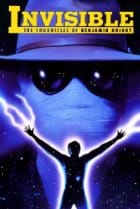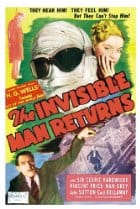La Belle Dame sans Merci
—by John Keats, 1819
O what can ail thee, knight-at-arms,
Alone and palely loitering?
The sedge has withered from the lake,
And no birds sing.
O what can ail thee, knight-at-arms,
So haggard and so woe-begone?
The squirrel’s granary is full,
And the harvest’s done.
I see a lily on thy brow,
With anguish moist and fever-dew,
And on thy cheeks a fading rose
Fast withereth too.
I met a lady in the meads,
Full beautiful, a fairy’s child;
Her hair was long, her foot was light,
And her eyes were wild.
I made a garland for her head,
And bracelets too, and fragrant zone;
She looked at me as she did love,
And made sweet moan
I set her on my pacing steed,
And nothing else saw all day long,
For sidelong would she bend, and sing
A faery’s song.
She found me roots of relish sweet,
And honey wild, and manna-dew,
And sure in language strange she said--
‘I love thee true’.
She took me to her Elfin grot,
And there she wept and sighed full sore,
And there I shut her wild, wild eyes
With kisses four.
And there she lullèd me asleep,
And there I dreamed—Ah! woe betide!--
The latest dream I ever dreamt
On the cold hill side.
I saw pale kings and princes too,
Pale warriors, death-pale were they all;
They cried—‘La Belle Dame sans Merci
Hath thee in thrall!’
I saw their starved lips in the gloam,
With horrid warning gapèd wide,
And I awoke and found me here,
On the cold hill’s side.
And this is why I sojourn here,
Alone and palely loitering,
Though the sedge is withered from the lake,
And no birds sing.
---------------------------------------------------
No more would Usha feel ill at ease in the company of her name-dropping, bookish colleagues. Confidently, she sidled up to the ostentatiously learned Timothy to test out her new powers.
"Usha, daaarling," he said. "How like la belle dame you look tonight!"
"'Full beautiful, a fairy's child'?" replied Usha. "I'm flattered. But, 'Her hair was long, her foot was light. And her eyes were wild.' I can't speak for my eyes, but my shoes are size eights and my hair is most definitely short."
Timothy was clearly taken aback. "I didn't know you were such a fan of Keats," he said.
"To paraphrase Kant," replied Usha, "perhaps you have no knowledge of myself as I am, but merely as I appear." And with that, she left him standing, aghast.
Her new implant was working a treat: a high-speed wireless chip that was connected to the world-wide web and a built-in encyclopaedia. It responded to the effort to remember by delving into these information sources and picking out what was being looked for. Usha could not even tell what she was actually remembering and what the chip had retreived. Nor did she care, for now she was the most erudite person in the room, and that was what counted.
Baggini, J., The Pig That Wants to Be Eaten, 2005, p. 226.
---------------------------------------------------
Although this idea has infested sci-fi stories for some time now, there's no evidence to suggest that such a mind implant would be possible. Knowledge (from the point of view of an empiricist, which evolutionary philosophers ascribe to) is something that can only be gained through sense experience. Empiricists "emphasizes the role of experience and evidence, especially sensory perception, in the formation of ideas, and argue that the only knowledge humans can have is a posteriori (i.e. based on experience)."
So how could anyone "know" something they have not experienced?
As Hume said, reason is the slave of the passions. Our physical drives for food, water, air, reproduction, esteem, etc., lead us towards the long-term survival of ourselves, our genes, our families, our tribes, our ecosystems, or of life in general. If you've ever tried to do any meditation, you know that our thoughts about the world bubble in and out of our consciousness all the time, perhaps as vague notions of threats or opportunities arise from the depths of our unconscious passions, which are then put together by the brain into reasons for action.
If we never experienced the sensation of learning the material in a networked database, how could our brains ever know where to pull information from? Could we repeat wisdom from Chinese scholars in their native tongue which we wouldn't even understand? Could our mouths make the clicks of the Xhosa language without ever having practiced them before? Surely these are physical acts, so the answer is somewhat the same as asking if we could effortlessly knit or dunk just because our minds had learned how. Without teaching the entire musculoskeletal system how to act as well, such a mind implant would not work. (Pesky mind-body problem...)
However, philosophical thought experiments are not about what is possible or probable. So, for the sake of argument, lets just say that such an implant did work for Usha. Isn't this just a faster, effortless example anyway of what we can mostly do now with slow and deliberate effort? We can already gain access to any fact we like as long as it exists in a public computer database somewhere. Our conversations IRL may not sparkle with the erudition of Usha's colleagues, but our blogging and social media comments could. (Hopefully some do....)
But facts alone don't make an argument, do they? We need a story, a worldview, a philosophy on which to hang those facts so that they string together into logical causes and effects that make sense of the world and allow us to explain the past and predict the future in order to survive. In our safe and modern world, buttressed by the support of 8 billion humans in societies that have been built over millennia, even the simplest worldviews that rely on magic can now go on existing for an individual's entire life. One can quite easily find a job (in, say, a presidential administration) where you can earn plenty of money to buy food and shelter even if you believe the Earth is 5,500 years old or that the rapture is just around the corner. All of the talk lately about fake political news is indeed very troubling, but such falsities will continue to arise just as long as they continue to fit into someone's worldview. In this week's Scientific American newsletter, Michael Shermer describes this phenomenon in an (incorrectly-titled) essay called "How to Convince Someone When Facts Fail." Shermer says that:
"Creationists, for example, dispute the evidence for evolution in fossils and DNA because they are concerned about secular forces encroaching on religious faith. Anti-vaxxers distrust big pharma and think that money corrupts medicine, which leads them to believe that vaccines cause autism despite the inconvenient truth that the one and only study claiming such a link was retracted and its lead author accused of fraud. The 9/11 truthers focus on minutiae like the melting point of steel in the World Trade Center buildings that caused their collapse because they think the government lies and conducts “false flag” operations to create a New World Order. Climate deniers study tree rings, ice cores and the ppm of greenhouse gases because they are passionate about freedom, especially that of markets and industries to operate unencumbered by restrictive government regulations. Obama birthers desperately dissected the president's long-form birth certificate in search of fraud because they believe that the nation's first African-American president is a socialist bent on destroying the country. In these examples, proponents' deepest held worldviews were perceived to be threatened by skeptics, making facts the enemy to be slayed. This power of belief over evidence is the result of two factors: cognitive dissonance and the backfire effect. ... In a series of experiments by Dartmouth College professor Brendan Nyhan and University of Exeter professor Jason Reifler, the researchers identify the backfire effect “in which corrections actually increase misperceptions among the group in question.” Why? “Because it threatens their worldview or self-concept.” For example, subjects were given fake newspaper articles that confirmed widespread misconceptions, such as that there were weapons of mass destruction in Iraq. When subjects were then given a corrective article that WMD were never found, liberals who opposed the war accepted the new article and rejected the old, whereas conservatives who supported the war did the opposite ... and more: they reported being even more convinced there were WMD after the correction, arguing that this only proved that Saddam Hussein hid or destroyed them. In fact, Nyhan and Reifler note, among many conservatives “the belief that Iraq possessed WMD immediately before the U.S. invasion persisted long after the Bush administration itself concluded otherwise.” ... If corrective facts only make matters worse, what can we do to convince people of the error of their beliefs? From my experience,
- Keep emotions out of the exchange.
- Discuss, don't attack (no ad hominem and no ad Hitlerum).
- Listen carefully and try to articulate the other position accurately.
- Show respect.
- Acknowledge that you understand why someone might hold that opinion.
- Try to show how changing facts does not necessarily mean changing worldviews."
These are interesting observations that result in a nice set of rules to help make sure that interactions are more civilized. But if that won't lead to a change in worldviews, then we see that it won't ultimately help. In fact, it may even backfire!! In my Response to Thought Experiment 67: The Poppadom Paradox, I wrote about Edgar Schein's description of "culture", which can be captured by this:
What is culture ? A pattern of shared basic assumptions learned by a group as it solved its problems of external adaptation and internal integration. There are three levels of culture: artifacts (visible), espoused beliefs and values (may appear through surveys), and basic underlying assumptions (unconscious taken for granted beliefs and values: these are not visible). The last being the more important since human minds need cognitive stability and any challenge of a basic assumption will release anxiety and defensiveness.
So Shermer's rules of engagement may help us get past the anxiety and defensiveness when underlying assumptions about worldviews are challenged, but still, how do worldviews change??
From what I have read and experienced, it basically takes a dramatic shock to one's life to loosen a crystalized worldview. The Great Depression flipped many of the American electorate to vote for FDR four times. The Horrors of World War II pushed Britain to adopt vast social programs like health care for all. The attack on 9/11 made Dennis Miller flip from being a liberal elite late-night talk show comic into a regular guest on Fox News. In contrast, Americans were asked to shop during the war in Iraq, and the consequences of the 2009 recession were softened by massive government bailouts so no great personal changes ensued. I don't know how to define it precisely, but there seems to be a need for a "come to Jesus moment" (or as I'd prefer it, a "come to science moment") where people hit rock bottom before they are forced to change their worldviews. Even then, it can take years to find and mold a new worldview into shape. For me, a deep crisis of faith occurred in my early twenties when the God of my youth wasn't there for me during a difficult time. (Shocker!) But even then I didn't switch worldviews overnight—that merely opened the door for me to start exploring other possibilities. Slowly, over about 7 years, I read lots, noticed new things, made connections in my brain, proved some things to myself, disproved others, until finally my new worldview of "atheist evolutionary philosopher" really began to take hold as the dominant new framework for my thinking. From reading plenty of other "conversion stories" like mine, this sequence of events seems common.
So how do you know if your worldview is working? In an excellent post over at the blog 3.8 Billion Years, Brock Haussamen listed Five Things I Expect My Core Belief To Do For Me, which I think we can all identify with:
- It should help me feel a little less terrified of death.
- It should point me towards a meaningful purpose in living.
- It should clarify the foundations of right and wrong.
- It ought to shed some light on the perpetual mix of joys and sorrows that make up daily life.
- And I want it to help get me through my darker hours.
I'd like to think about this some more before saying more about what a worldview should do. But on the other hand, how might you know if your worldview isn't working? Can you know this before a major shock to the system occurs? Perpetual feelings of anger might be one sure sign. In my post titled "What's Causing These Emotions," I hypothesized that such feelings of determination ➞ annoyance ➞ frustration ➞ anger ➞ hatred ➞ and rage all come from the increasingly intense cognitive appraisal that "something is bad and I need to do something about that." That "something bad" is either the world, or your worldview. One of them must change. But the conclusion we often come to is that it's their worldview that must change. They are causing all the bad in this world that I see. But as we've just learned, they are unlikely to change anytime soon. All of our anger is likely to persist. That's the difficulty we are faced with today on a global scale as millennia-old worldviews clash instantly in cyberspace or wherever multicultural societies are mixed together through transport, trade, immigration, and travel.
O what can ail thee, knight-at-arms?
I met a world of worldviews;
Each built of only facts and dreams
But none change them.
The information age we are living through is a time of great upheaval, but that also means it's a time of great opportunity. In stable and isolated worlds, views never change. In our current competitive circumstances, however, worldviews will be selected or forced to adapt. I think I've found a worldview that is built on what unites us all: our shared evolutionary history with all of life on this planet. But that's not going to be accepted anytime soon—even if all the facts were in my head and on my side. So while the clash of worldviews goes on all around us, I'll try to keep an open mind, keep building my mental connections, keep searching for a community of support from others who share these views, keep trying to follow Michael Shermer's tips for dealing with others online, and keep being prepared to fight against others who are not so open minded in the real, political, physical world.
I'm off next week for the holidays, so I'll leave you with that message after a difficult 2016. Thanks for your support and I look forward to doing more for a better worldview in 2017. Until then!










